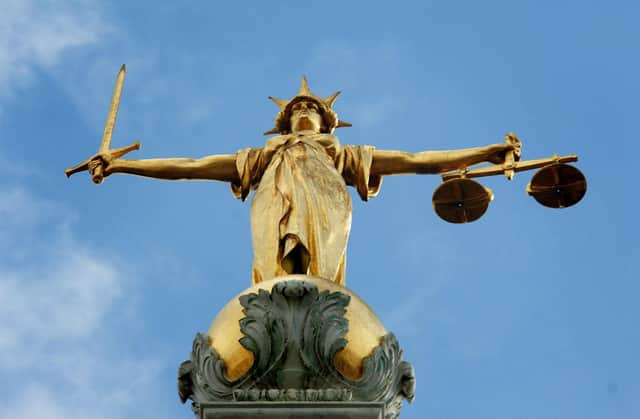DUP MLA: Amid ongoing terrorism, we will oppose the legacy bill and its corruption of justice


Those who seek to murder police officers deserve to face the full rigour of the law.
There should no get-out clause for those who recklessly plant bombs without any regard for the safety of vulnerable residents who are reliant on carers or children who are unable to go to school.
Advertisement
Hide AdAdvertisement
Hide AdThis principle should apply regardless of when or where such criminal acts take place.
Terrorism was wrong in 1972 and 1992.
It is still wrong in 2022.
The UK government’s pursuit of a de facto amnesty for wrongdoing during the Troubles uproots the rule of law and disgracefully diminishes the needs and concerns of innocent victims in Northern Ireland and further afield.
Perhaps most significantly, however, it sends mixed signal about how society should confront the scourge of politically-motivated violence today.
As the Troubles (Legacy and Reconciliation) Bill has its Second Reading in the Lords, the DUP will be opposing the latest instalment in the corruption of justice in Northern Ireland – just like we did in rejecting immoral prisoner release schemes and letters of comfort granted to terrorists on-the-run.
The legislation is an affront to justice.
Advertisement
Hide AdAdvertisement
Hide AdIt would ban most prosecutions, whether through our court system or the coroner.
It would prevent civil claims against perpetrators.
Perversely, terrorists who benefit from the amnesty would face no consequences should it later be proven that they have lied as part of process.
The government is also proposing to scrap the requirement for someone convicted of a Troubles-era offence to serve two years in prison before being able to apply for early release.
Where then is the incentive for any terrorist to come forward?
The answer is clear – there is none.
Advertisement
Hide AdAdvertisement
Hide AdIndeed those who fail to respond to a request for information would be handed a derisory £1,000 fine the same amount someone would pay for running a red light.
This regime will not bring reconciliation.
Rather it will further alienate innocent victims.
Some might even face the prospect of seeing the individuals who murdered their loved ones – and who subsequently fled Northern Ireland to evade the authorities – returning to live out their days in the communities they terrorised and left bereaved.
It is repugnant that the legislation stands to embolden serious offenders in this way.
This outcome wouldn’t be tolerated for race crime or cases of religious extremism in England and Wales so why should it be foisted upon victims of terrorism in Northern Ireland?
Advertisement
Hide AdAdvertisement
Hide AdThe Bill doesn’t even ensure that a ‘victim’ excludes perpetrators killed or injured by their own hand.
The Democratic Unionists will ultimately reject these proposals but we also recognise we have a duty to victims to mitigate the harm it poses as far as possible.
The government eventually ceded to pressure on excluding sexual offences from the scope of immunity but it must go further.
We need to see a deterrent against anyone granted immunity glorifying terrorism.
Advertisement
Hide AdAdvertisement
Hide AdThere should be a power to revoke immunity and the 1998 early release provisions should be repealed in their entirety to actually incentivise engagement with the process.
I do not believe the route to preventing vexatious and repeated investigations against former service personnel was to draw a moral equivalence between the terrorist intent on bloodshed and those who served our community with professionalism within the law for many years.
Most soldiers and police officers neither need, nor seek, such protection.
In opposing this Bill, the DUP will seek to defend their memory and continue to put the needs of victims of terrorism front and centre.
• Gary Middleton is DUP MLA for Foyle and was a junior Stormont minister at the Executive office until earlier this year